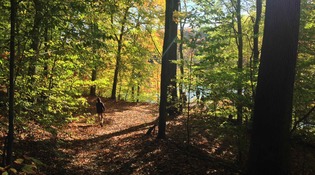 loading
loading
FindingsWhat we’ve lostA study explores humans’ declining contact with nature.  View full imageMuch of the human race has moved from a life of raw exposure to one of temperature-controlled luxury. We sleep in houses, work in buildings, commute in cars or trains. “Adults and children spend ever more time watching TV and using computers,” notes a new report, The Nature of Americans, coauthored by a team at DJ Case and the late Stephen Kellert ’71PhD of Yale’s School of Forestry and Environmental Studies. (For more on Kellert, see page 16.) “These trends pose a nationwide problem,” the report says, as “overwhelming evidence shows the physical, psychological, and social well-being of humans depends on contact with nature.” Over a two-year period, the authors undertook a sweeping audit of the views of Americans, contacting nearly 12,000 adults and children. They convened focus groups, interviewed kids, and conducted a nationwide online survey asking people what they think about nature, how often they spend time in it, and what prevents or facilitates this activity. The report discovered a gap between interest and action. “Americans recognize that nature is important for their health and well-being; they see its effect on themselves and on their children,” says Daniel Escher, a researcher at DJ Case. “But then they confront their daily lives.” Lack of time, resources, and urban green space all play a part. The report offers specific recommendations for bridging this gap. “I hope the results go to a number of different audiences—not just conservationists and environmentalists, but people in education, or healthcare, or urban planning,” Escher says. “One of [Kellert’s] great traits was how he saw all of these pieces could fit together.”
The comment period has expired.
|
|